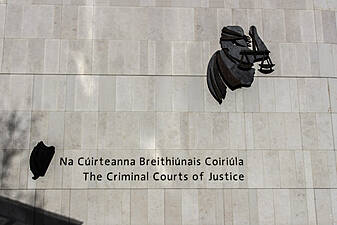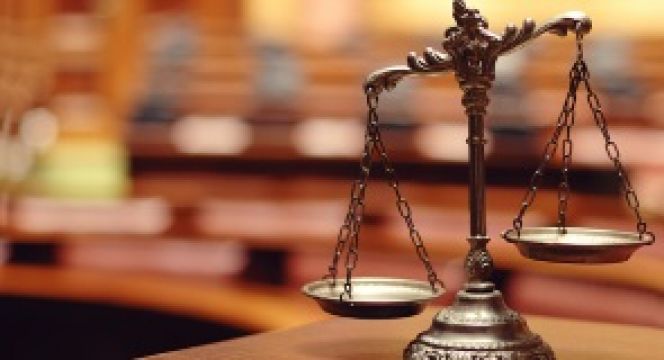In a first for the Irish courts, the Irish Human Rights and Equality Commission has been given permission ‘to intervene’ in a criminal case, where the DPP is appealing against the acquittal of two men on a charge of IRA membership.
Lawyers for the Director of Public Prosecutions today told the Court of Appeal of their concerns about such an intervention, which has never arisen in the context of a criminal trial or an appeal from a criminal trial.
However, the Commission submitted that any idea it would weigh in "on one side as opposed to the other" was "ill-conceived".
The Special Criminal Court last year directed that both men be acquitted of the charges after gardaí refused to release secret material during their trial.
Belief evidence
The non-jury court had ruled during the 36-day trial that the material upon which the head of the Special Detective Unit had based his ‘belief evidence’ should be disclosed.
When it was not, the court ruled that this ‘belief evidence’ as to the men's IRA membership was inadmissible because ‘issues of unfairness’ arose in light of his ‘blanket’ claim of privilege.
Ms Justice Tara Burns said that without this ‘belief evidence’, the evidence relating to the charges was ‘inherently tenuous’ and the court could not convict the men.
She also referred to ‘worrying aspects’ of the evidence of Detective Chief Superintendent Anthony Howard, in light of a claim made by former accused-turned-State's-witness David Cullen in relation to the two accused men.
The court directed they be found not guilty of IRA membership.
The Director of Public Prosecutions has appealed this acquittal ‘with prejudice’, meaning that if the Director is successful, both men could be tried for the same crime again. The appeal is listed to be heard by the Court of Appeal this July.
IHRC
However, the Irish Human Rights Commission applied to the Court of Appeal this morning ‘to intervene’ in the appeal by exercising its amicus curiae (‘friend of the court’) function.
Patrick Gageby SC, representing the Commission, said that there had been ‘an unusual ruling’ in this case and that the Commission felt that it could assist.
However, the DPP expressed concerns. Paul O’Higgins SC for the DPP said that, if allowed, this would be a first such intervention.
“The particular concern is that the process of intervention has never arisen in the context of a criminal trial or an appeal from a criminal trial,” he said. “The director’s submission is that it should be very carefully considered whether it would affect the balance.”
Mr Gageby disagreed with the suggestion that the intervention might imbalance the proceedings.
“The idea that it is to be supposed that the Commission will weigh in on one side as opposed to the other is ill-conceived,” he said.
The three-judge court took some time to consider the unusual application before returning to deliver an extempore decision.
“Applications to intervene in an appeal from a criminal trial are effectively unknown,” noted Court President Justice George Birmingham.
Accede to application
However, he said that the court did have the jurisdiction to accede to the application.
The court noted the ‘anxiety’ on behalf of the DPP, but also the Commission’s commitment to keeping its intervention ‘confined and focused’.
“The court at this stage is prepared to accept that applications of this nature are not made lightly by the Commission and, in the circumstances, we will accede to the intervention,” he said.

However he said that the court anticipated that the Commission’s commitment regarding focus would be delivered on, and said the court would keep that under review.
He gave both the DPP and the Commission 14 days to produce their submissions. He asked that the two men involved, the respondents, submit theirs by close of business this Thursday.
The Commission later released a statement headed: ‘Special Criminal Court Procedural Safeguards in Question in Court of Appeal Case’.
It said that significant human rights issues arose in such cases, including the appropriate balance to be struck between ‘the vital public interest in protecting Garda investigations’ and ‘the requirements of a fair trial under the Constitution and the European Convention on Human Rights’.







